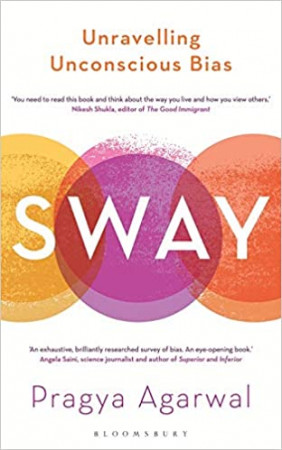Sway: Unravelling Unconscious Bias
Have you ever been told to smile more, been teased about your accent, or had your name pronounced incorrectly? If so, you've probably already faced bias in your everyday life. We like to believe that we are all fair-minded and egalitarian but we all carry biases that we might not even be aware of. We might believe that we live in a post-racial society, but racial tension and inequality is pernicious and pervasive. We might believe that gender inequality is a thing of the past, but it is still ubiquitous. Unconscious bias has become a frequently-used term in our vocabulary, but there are still so many myths around it. For the first time, behavioural scientist, activist and writer Dr Pragya Agarwal unravels the way our implicit or 'unintentional' biases affect the way we communicate and perceive the world, and how they affect our decision-making, even in life and death situations. She takes a unique inter-disciplinary approach combining case studies, personal experience, interviews and real world stories underpinned by scientific theories and research. She covers a wide range of implicit biases in depth, including age-ism, appearance, accents, sexism and aversive racism. Throughout, Pragya answers questions such as: do our roots for prejudice lie in our evolutionary past? What happens in our brains when our biases are activated? How has bias affected technology? If we don't know about it, are we really responsible for it? Can we ever completely get rid of unconscious bias At a time when partisan political ideologies are taking centre stage, and we struggle to make sense of who we are, who we want to be, and who we will become, it is crucial that we understand why we act the way we do, which means understanding what unconscious bias really is and how it functions within all of us. This book will enable you to reflect and consider the forces that shape us all. And, it will open your eyes to your own biases in a scientific and non-judgmental way.
Get it now and save 10%
BECOME A MEMBER







Bibliographic information